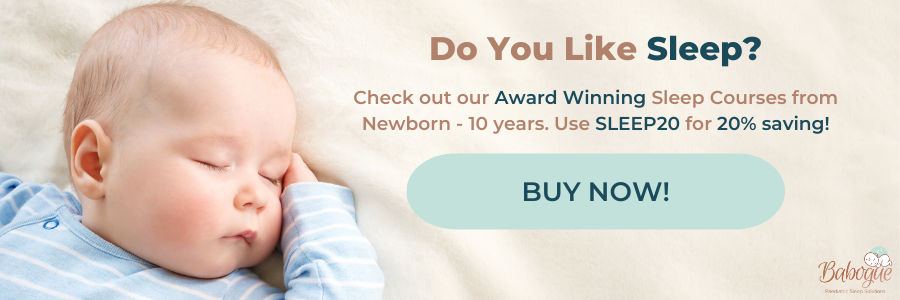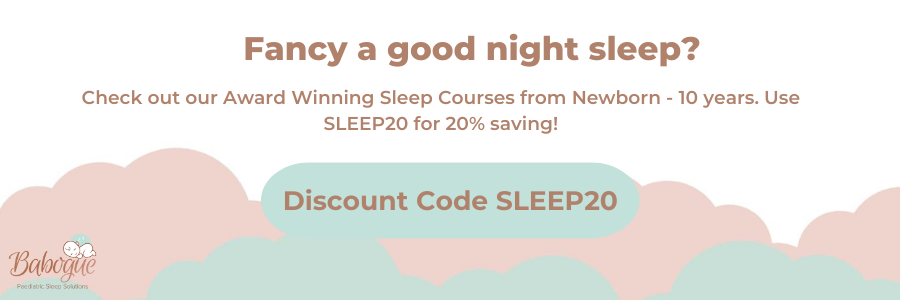What Age Do Babies Have Sleep Regression?
Sleep regression is the phrase used to describe when a baby or toddler who may have been previously sleeping well, begins to show changes in their sleeping patterns. This can include taking shorter, or no naps during the day, resist bedtimes and wake up through the night where things may have been more settled in that respect. Sleep regressions can last anywhere from a few days to a two to six-week period of time and can be a difficult and frustrating time for parents.
You have probably worked really hard on getting your little ones into a great bedtime routine and felt that sleep problems were a thing of the past. However, sleep regressions are part and parcel of the overall sleep development of your baby. Understanding and anticipating them will be key in handling it for your little one.
Key signs of sleep regression will include your baby suddenly waking up frequently during the night, fighting sleep at bedtime, shorter naps and generally fussiness.
What Causes Sleep Regression?
It’s important to remember that each baby is different, and you mustn’t compare your experiences with friends or even from one of your children to the next. That being said, there are key ages that sleep regression tends to occur, the first being 4 months, and there are also developmental milestones that can trigger it.
Sleep regressions occur due to huge progressions in your little one's development that then, unfortunately, can have a negative impact on sleep. These can occur when your baby is learning to crawl, pull themselves up or even potty training. One thing to always remember is that once your baby or toddler is passed each milestone, they can return to their standard sleeping patterns – which means you can too!
How Do I Know if it’s a Sleep Regression?
If your baby is sleeping less or stopped sleeping through the night for a few nights in a row and you can feel a tooth coming through, for example, then this is unlikely sleep regression and probably more teething related. So going through a little bit of trial and error plus noting down what is going on will help you to figure out what could be contributing to the sleep disruptions.
If the sleep problems are consistent for two to six weeks, and there are no other symptoms, then it’s likely sleep regression related. It can sometimes be hard to recognise sleep regression, especially if it doesn’t occur around an obvious milestone or expected age. However, as parents, you will know your own baby and be able to recognise any sudden changes in their sleep patterns.

Typical Baby Sleep Regression Ages

Four Months Old
Read our blog 6 tips for dealing with the 4 month old sleep regression

Six Months Old

Eight to Ten Months Old
Read our blog on 8 month sleep regression

Eleven to Twelve Months Old
Much of the sleep challenges that parents experience at this age range are due to a need to tweak napping schedules. It can be the start of a need to shift towards 1 nap a day, however, trying to retain 2 naps for as long as is beneficial to your baby is recommended.

Fifteen Months Old

Eighteen Months Old

Two Years Old
Read our blog on 2 year old sleep regression
How Do I Get Rid of Sleep Regression?
Unfortunately, there’s no ‘quick win’ to getting through each stage of sleep regression. However, it typically lasts for to two to three weeks, so it’s important to know there’s a light at the end of the tunnel and that, as ‘regression’ suggests, your baby may return to their former sleep pattern, and it doesn’t last forever.
This being said, it’s essential that you don’t allow sleep regression to result in new habits being introduced around your little one's sleep. For example, through the frustrations of sleep regression, it’s easy to let your baby fall asleep in your arms, feed them to sleep or lie down with them to go to sleep. If you do end up in a situation like this moving away from the new habit after the regression has passed is key.
Here are six tips for surviving sleep regression:
1. Recognise that sleep patterns may need to be adjusted for your little ones' sleep balance to settle. Sleep regression might set you back, but it doesn’t need to result in settled sleep forever leaving your home. By understanding sleep and its developing stages you will be better equipped to deal with what lies ahead.
2. Make sure your babies sleeping environment, including during naptime, is as comfortable and dark as possible. Melatonin, the sleepy hormone, needs darkness for it to initiate sleep and maintain it. Sleeping in bring environments simply does not support consolidated restorative sleep for the body – day or night.
3. Ask for help – whether this is from a partner, grandparent or friend. Happy parents will equal happy babies, so don’t let sleep regression overrule you! Your loved ones will be more than ready to help look after their favourite little person, so make sure you ask if you need help.
4. Research (Research, Research). The more you know about each baby stage, from nap transitions and teething to sleep regression and developmental milestones, the better you will be able to understand each phase and understand what might happen at each age. My online program The Sleep Series is designed to empower and educate parents about child sleep through the age ranges so that at each stage they know what lies ahead.
5. Consider an earlier bedtime. Sleep regression can ultimately leave your baby irritable and exhausted, not to mention you as parents so an earlier bedtime could do the whole family some good!
6. I’ve said it before, but I’ll repeat it, every baby is different. You mustn’t compare your situation to another’s but if you are really concerned about sleep patterns, regression or just day to day, then consider consulting with a family sleep consultant to put your mind at ease.
Struggling with Sleep?
If you are struggling with regression and would like some support check out our Sleep Series Courses. These are comprehensive video-based sleep courses that will help you understand your little ones sleep and give you the toolkit to handle the rollercoaster that is child sleep. They also have expert-led support via the Sleep Series Community on Facebook where Erica conducts weekly LIVE Q&A sessions and offers daily feedback and support to questions asked.

